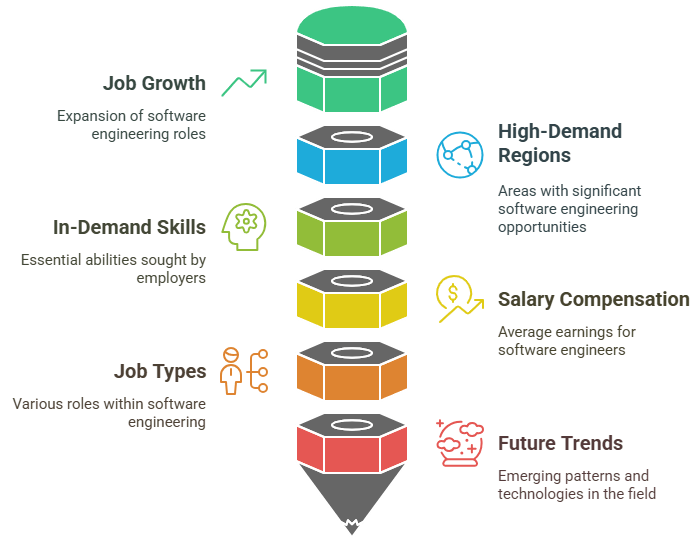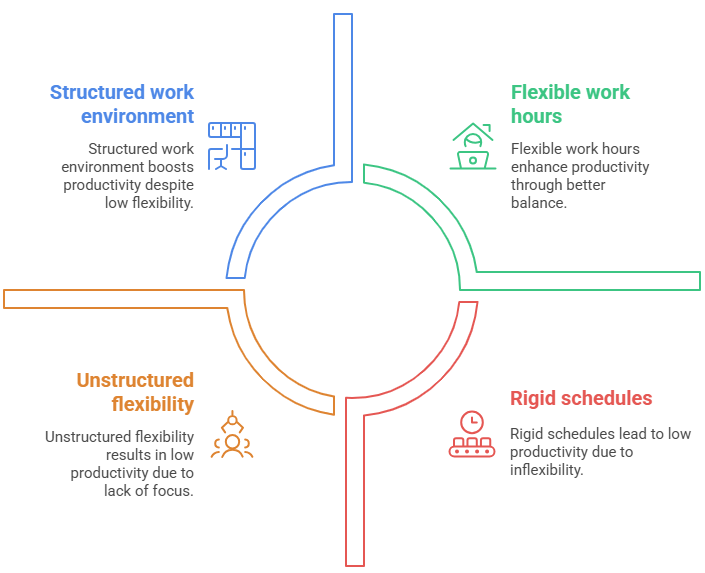
- Introduction to Software Engineering
- Job Market and Demand
- Salary and Compensation
- Career Growth and Advancement
- Work-Life Balance
- Required Skills and Education
- Challenges in the Field
- Conclusion: Is It the Right Path for You?
Introduction to Software Engineering
Software engineering is the systematic application of engineering principles to the design, development, testing, deployment, and maintenance of software systems. It provides a structured approach to software creation, ensuring that the final product is reliable, efficient, scalable, and aligned with user needs and business goals. Unlike simple programming, software engineering encompasses the entire software development lifecycle (SDLC), including requirement analysis, architectural and detailed design, implementation, validation, and post-deployment support. This discipline emphasizes collaboration, documentation, quality assurance, project management, and Web Developer Certification Courses to deliver software within time and budget constraints. Software engineers employ various methodologies such as Agile, Waterfall, Scrum, and DevOps to adapt to project demands and manage workflows effectively. The field also addresses essential areas like user experience, security, maintainability, and risk assessment. As modern software systems grow in complexity and impact nearly every aspect of daily life from healthcare and finance to transportation and entertainment, software engineering has become an indispensable profession. Continuous learning and adaptation to new technologies, frameworks, and best practices are crucial for software engineers. Ultimately, software engineering strives to produce robust, user-friendly, and high-performing software solutions that drive innovation and meet real-world challenges.
Are You Interested in Learning More About Web Developer Certification? Sign Up For Our Web Developer Certification Courses Today!
Job Market and Demand
- High Demand Across Industries: Software engineers are needed in various sectors, including finance, healthcare, education, e-commerce, entertainment, and government.
- Growth in Emerging Technologies: Fields like artificial intelligence, machine learning, cybersecurity, and blockchain are creating new job roles and increasing demand for specialized skills, with Web Development Project Ideas for Beginners offering a great starting point to build practical experience in these emerging technologies.
- Global Opportunities: With remote work becoming more common, software engineers can access job markets beyond their local regions, increasing employment flexibility and reach.
The job market for software engineers and IT professionals continues to grow rapidly, driven by the increasing reliance on digital technologies across all industries. As businesses undergo digital transformation and embrace cloud computing, artificial intelligence, and data analytics, the demand for skilled software engineers remains strong. Employers seek professionals who can build scalable software, maintain existing systems, and innovate new solutions. Below are key highlights of the current job market and demand trends:

- Attractive Salaries: Due to high demand and the technical nature of the work, software engineering roles often come with competitive salaries and benefits.
- Diverse Career Paths: Professionals can specialize in areas such as front-end development, back-end systems, mobile apps, data engineering, or cloud infrastructure.
- Continuous Learning Required: To remain competitive, software engineers must keep updating their skills with the latest tools, languages, and development methodologies.
- Progressive Job Titles: Engineers typically move from junior or entry-level roles to positions like mid-level developer, senior software engineer, lead developer, and eventually roles such as principal engineer or software architect.
- Specialization Opportunities: Career growth can involve specializing in high-demand areas like artificial intelligence, cybersecurity, cloud computing, data science, or mobile app development, with resources like the How to Use React Form Validation guide helping to enhance skills in web development and improve career opportunities.
- Leadership and Management: Experienced engineers can transition into leadership roles such as team lead, project manager, or engineering manager, overseeing teams and development strategies.
- Technical Expertise Recognition: Professionals can become subject matter experts or technical leads, gaining recognition for deep knowledge in a specific domain or technology.
- Entrepreneurship and Startups: Some engineers choose to start their own tech companies or work in startups, gaining experience in product development and business operations.
- Continuous Learning and Certification: Advancing in this field often involves pursuing advanced degrees, certifications (like AWS, Azure, or PMP), or attending workshops and conferences to stay current and competitive.
- Educational Background: A bachelor’s degree in computer science, software engineering, or information technology is commonly required. Some roles may also accept coding bootcamp graduates or self-taught individuals with strong portfolios.
- Programming Languages: Proficiency in languages such as Python, Java, C++, JavaScript, or C# is fundamental, depending on the job role and industry, with ReactJS Developer Salary insights offering valuable information for those focusing on front-end development and looking to maximize their earning potential.
- Problem-Solving and Logical Thinking: Strong analytical skills are essential for designing algorithms, debugging code, and optimizing performance.
- Understanding of Data Structures and Algorithms: A solid grasp of core computer science concepts is crucial for efficient software development and technical interviews.
- Software Development Tools and Practices: Familiarity with version control systems (like Git), IDEs, debugging tools, and Agile methodologies is important in modern software teams.
- Communication and Teamwork: Software engineers often work in teams, so strong verbal and written communication, along with collaboration skills, are vital for project success.
Salary and Compensation
Salary and compensation in software engineering are among the most competitive in the job market, reflecting the high demand and specialized skill set required in the field. Entry-level software engineers typically earn strong starting salaries, which can significantly increase with experience, technical expertise, and leadership roles. Factors that influence compensation include job role, geographic location, company size, industry, and the engineer’s proficiency in in-demand technologies such as cloud computing, machine learning, cybersecurity, or full-stack development. In major tech hubs like Silicon Valley, New York, and Seattle, salaries are often higher to reflect the cost of living and market competition, with expertise in Angular Components further boosting career prospects and earning potential. Beyond base salary, compensation packages often include bonuses, stock options or equity, retirement contributions, health insurance, and other benefits such as remote work flexibility, paid time off, and professional development allowances. Tech giants, startups, and multinational corporations frequently offer attractive incentive structures to attract and retain top talent. Additionally, freelance and contract software engineers can command premium hourly or project-based rates depending on their portfolio and expertise. Overall, software engineering offers not only financial stability but also growth potential, making it a highly rewarding career choice in today’s digital economy.
Excited to Obtaining Your web developer Certificate? View The web developer course Offered By ACTE Right Now!
Career Growth and Advancement
Software engineering offers a clear and rewarding path for career growth and advancement, supported by continuous learning, skill development, and professional experience. As technology evolves rapidly, engineers have numerous opportunities to specialize, lead projects, or transition into managerial or strategic roles. With the right mix of technical expertise and soft skills, software engineers can advance quickly in their careers. Below are six key aspects of career growth in this field:
Interested in Pursuing web developer certification Program? Enroll For Web developer course Today!
Work-Life Balance
Work-life balance in software engineering can vary depending on the company culture, project deadlines, and individual roles, but it has become a growing priority in the tech industry. Many organizations now recognize the importance of employee well-being and offer flexible work arrangements, such as remote work, flexible hours, and compressed workweeks, to help engineers manage personal and professional responsibilities effectively.The rise of remote and hybrid work models has further enabled software professionals to better control their schedules and reduce commute-related stress, with Web Developer Certification Courses providing opportunities to gain valuable skills from anywhere. While some high-pressure environments, such as startups or product launch phases, may demand longer hours, many companies actively promote a healthy work-life balance through supportive policies, wellness programs, and clear boundaries between work and personal time. Tools and practices like task automation, Agile methodologies, and project management software also contribute to efficient workflows, minimizing burnout and overtime. Additionally, a strong emphasis on collaboration, time management, and realistic goal-setting help maintain productivity without compromising mental health. Ultimately, work-life balance in software engineering depends on individual choices, company expectations, and project demands, but with the right environment and discipline, it is possible to enjoy a fulfilling career while maintaining personal well-being and a healthy lifestyle.

Required Skills and Education
To become a successful software engineer, a strong foundation in computer science principles, programming, and problem-solving is essential. While many professionals enter the field with a bachelor’s degree in computer science, software engineering, or related disciplines, practical skills and real-world experience often hold equal value. Employers look for candidates who can adapt to new technologies, think analytically, and work collaboratively. Below are six key skills and educational requirements for aspiring software engineers:
Challenges in the Field
Software engineering is a dynamic and rewarding profession, but it also comes with its share of challenges that require adaptability, continuous learning, and problem-solving skills. One of the primary challenges is keeping up with rapid technological changes, as new programming languages, frameworks, and tools frequently emerge, making it essential for engineers to stay current. Managing complexity in large-scale systems, ensuring code quality, and maintaining legacy systems can also be difficult, particularly as projects grow over time, with different Types of Web Developers specializing in various aspects of development to tackle these challenges effectively. Meeting tight deadlines and adapting to evolving client or user requirements can lead to pressure and stress, especially in fast-paced development environments. Debugging, testing, and ensuring software security add additional layers of complexity, requiring meticulous attention to detail. Collaboration and communication with cross-functional teams, clients, or stakeholders can sometimes lead to misunderstandings or delays if not managed effectively. Additionally, balancing feature development with performance optimization and scalability often poses technical and strategic challenges. Ethical concerns, such as data privacy and responsible AI use, are becoming increasingly important in the field. Despite these hurdles, many software engineers find the challenges intellectually stimulating and view them as opportunities to grow professionally and contribute to meaningful technological solutions.
Conclusion: Is It the Right Path for You?
Deciding whether a career in software engineering is the right path depends on your interests, strengths, and long-term goals. If you enjoy problem-solving, logical thinking, and continuous learning, software engineering could be a fulfilling and rewarding career choice. The field offers immense opportunities for growth, diverse specializations, and the chance to work on innovative technologies that shape the future. However, it is also important to acknowledge the challenges, such as keeping up with rapid technological changes, managing complex systems, and working under pressure to meet deadlines.If you thrive in collaborative environments, can adapt to evolving demands, and are passionate about technology, software engineering can offer both intellectual satisfaction and financial rewards, especially with Web Designing Training to enhance your skills further. On the other hand, if you are drawn to roles with more predictable work hours or less technical responsibility, it may be worth exploring other career options. Ultimately, software engineering can be a great fit for those who are ready to embrace its challenges and are motivated by creating impactful, scalable solutions. If you are willing to invest in continuous learning and have a passion for technology, a career in software engineering can be highly rewarding, both professionally and personally.

